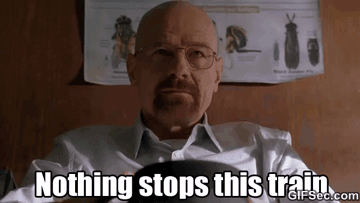A Human Becoming
More than a Member
Bernie Sanders' campaign claimed single payer would save $324B more than a health economist projected with regards to prescription drugs. This is problematic since total prescription drug spending in the U.S. last year was $305B.... When pointed out that the savings Sanders was projecting was physically impossible, they just changed the number to the largest possible number that was physically possible.
Dear God, this man is the Paul Ryan of the left.
http://www.vox.com/2016/1/28/10858644/bernie-sanders-kenneth-thorpe-single-payer
Holy hell. That is just....wow.
That's a study by one dude who has an (understandably) less optimistic outlook than Sanders. He doesn't discredit universal healthcare altogether, being someone who laid out a single payer proposal for Vermont twice, more that the current plan has issues. I bet you three just took the most damning sections without actually looking at the critiques. Some are substantial while others are meerily differences in opinion.Yeah, this isn't the universal health care plan the US needs.
That 4.7% is from his legislation work in Vermont. Not sure it's a perfect conversion to the national level.Sanders assumes $438 billion more per year in administrative savings than Thorpe; Thorpe assumes that total health spending will fall by 4.7 percent because single-payer is simpler to administer, while the campaign has anticipated a reduction of 16 percent (changed in a later email to 13 percent).
Opinion differences.Sanders assumes $216 billion more per year in savings because Thorpe thinks eliminating copayments and deductibles will lead to people using a lot more health care (10 percent more, to be exact), and Sanders's camp is more skeptical (they assume 6 percent more).
Seems like a fair criticism.Sanders assumes $160 billion per year in savings relative to Thorpe because, they argue, he includes elective procedures like plastic surgery, which single-payer wouldn't cover. Thorpe disputes this: "Cosmetic surgery, really? That's $12 billion a year and in the second decimal of rounding." In other words: There's no way excluding plastic surgery can give you $160 billion of savings.
I've been skeptical for a while now about the power states have under his proposal. I think even an idealistic perspective is that amount of increase would take more than decade (if not two) to happen. It's really hard to say how the atmosphere will be ten years from now.Sanders assumes that states will pay $100 billion more per year in Medicaid and SCHIP spending than Thorpe does, because they think states will keep paying in the exact same amount they currently pay into those programs. Thorpe is skeptical, noting that in the Supreme Court's 2012 Obamacare ruling, it "said in essence you cannot force states to make spending on a expansion of Medicaid how is the world can you expect states to contribute toward the costs of programs that are eliminated?"
The important part adam failed to highlight. Here is the huge detail he should have instead if he wanted to attack Bernie's plan:He concludes, just as UMass Amherst economist Gerald Friedman did in his analysis of Sanders's plan, that most households would benefit. Only 27 percent of total working households with private insurance would pay more according to Thorpe, with 72 percent paying less; young adult workers, workers in small businesses, and workers on Medicare would gain too.
The big exception is Medicaid. Thorpe finds that 72 percent of Medicaid workers would pay more under single-payer even under Sanders's lower tax rates. Medicaid currently has very limited cost sharing for families in poverty, mostly limited to prescription drug copays, and so single-payer would offer such families little in the way of health savings while making them pay an additional 6.2 percent in payroll taxes, even if most don't have taxable income that'd be hit by the 2.2 percent income-based premium.
Obviously I have my biases, but I can see that his current plan needs serious work. At the same time though, there's still plenty of time and for better and worse the campaign has responded when discrepancies were pointed out. The big idea is I don't think it's naive to believe making affordable single payer healthcare in the United States is possible. I would be very happy if Hillary came out with her own plan that surpassed Bernie's, because to me it happening is what's important not who does it, but she isn't going to.
It looks like tmarg pointed out things I said while typing this out.


